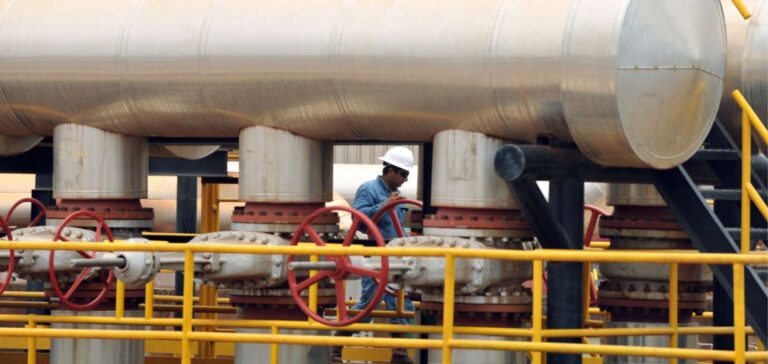Colombia’s oil industry was alarmed on Thursday by the programmed decline in the country’s oil reserves, which will only be sufficient to supply the country until 2030, a much shorter period than the government, which is betting on an energy transition, had estimated.
Proven oil reserves have risen from 2.039 billion barrels in 2021 to 2.074 billion barrels in 2022, a quantity that will only be sufficient to meet local demand for the next 7.5 years, and not for around 15 years as previously estimated by the government, according to data from the National Hydrocarbons Agency (ANH). “We all expected a larger increase in reserves, and the truth shows that this is not the case,” commented the president of the Colombian Oil and Gas Association (ACP), Francisco Lloreda, in an interview with a local radio station.
The situation “should awaken and raise all alarms within the national government and citizens”, warned Mr. Lloreda. Earlier this year, left-wing President Gustavo Petro – elected in the summer of 2022 – had assured us that crude reserves were sufficient “for domestic consumption between 2037 and 2042”. Promoting the energy transition, the first left-wing government in the country’s history announced that it would no longer sign oil exploration contracts and would give priority to renewable energy sources such as solar and wind power.
This decision is vilified by the conservative opposition, and the subject is now a major political issue in Colombia. For the ACP, President Petro’s strategy could jeopardize the country’s energy self-sufficiency. “Gradually, production will start to decline and this will translate into oil and gas imports,” warned Mr. Lloreda. These imports would come mainly from neighboring Venezuela and could cost the country “three times as much” as local production, he claimed.
Oil is also one of the main export products of Latin America’s fourth-largest economy. Sales of crude oil, its derivatives and coal accounted for over 50% of the country’s exports in March, according to the latest report from the National Administrative Department of Statistics (DANE). According to this entity, 14.6 million barrels of oil were exported during this month, 15% less than in the same month of the previous year.





















